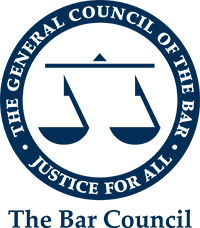*/
What should barristers be doing on the personal finance front ahead of the end of the tax year on 5 April? Julian Morgan of Fleet Street Wealth answers your questions
Certain allowances are tax year dependent. ISAs, for example, cannot be carried over into the following tax year. Pensions work slightly differently as there is the ability to also make use of some of the unused annual allowances from previous tax years but conditions apply and these are likely to be scrapped in the future.
Monies within pensions and ISAs grow tax free and investing in pensions helps to mitigate annual Income Tax bills. HMRC also contributes money on top of individuals’ own regular or lump sum payments. These reliefs and incentives help funds grow quicker than other investments.
Other annual allowances include the use of the Capital Gains Tax Allowance (CGTA), offshore investments allowances and reliefs accessed via Venture Capital Trusts (VCTs) and Enterprise Investment Schemes (EISs).
One should also consider children’s Junior ISAs and pensions and also the setting up of a non-working spouse pension so that their Personal Allowance can be used in retirement.
The most obvious difference is the tax treatment and the transition from the ‘cash basis’ to the ‘true and fair basis’.
Income can also fluctuate significantly and they often invest lump sums rather than regularly. Other than the Judicial Pension Schemes and some income protection benefits set up via chambers, no occupational benefits exist and therefore the Bar need to provide for themselves. The combination of all this means it’s vital they have good financial advice.
Barristers also work long hours and some of the life policies (eg income protection) are not suitable because the life company have restrictions on the numbers of working hours. It is therefore crucial that one understands the contracts one takes out and their likely suitability.
Finally, the Bar’s unpredictable earnings can make it more difficult to secure mortgage and short-term debt finance.
The better our understanding of a client, the better the advice and the more efficient the delivery, so we will research a client’s individual situation thoroughly at outset.
As part of this process, we go through a fact find, an expenses schedule and a risk form. We marry up the information from external providers with the information we have from the client and, taking into account the client’s aspirations, we assess what is working well, what needs to be changed and what needs to be set up. Those recommendations are then summarised to the client.
We are a Chartered firm and remain independent at a time when increased regulation has encouraged firms to limit the scope of their advice to the products of a far smaller pool of companies or maybe just one and it is questionable that that will remain the best company for the full term of your policy.
Most firms today charge initial fees based upon the amount being invested. We think this unjustifiable since the paperwork for an investment of £100,000 is the same for that of £10,000. Our initial fees are set fees and we also cap our ongoing fees which makes us particularly attractive for larger accounts.
We have a sound knowledge of the Bar and the profession. We have had a close relationship with the Bar for over 25 years, are a Bar Council partner and are known in most sets in London.
I would argue that the quality and technical competence of the people within the firm at all levels is unusually high. We are particularly careful about the individuals we take on. We are one of the few firms to have a Graduate Training Programme that takes five years to complete. Staff are all extremely articulate, service orientated and wedded to the idea of providing clear, structured, ethical financial advice to our clients.



Fleet Street Wealth is a trading style of Fleet Street Financial Ltd which is authorised and regulated by the Financial Conduct Authority.
Certain allowances are tax year dependent. ISAs, for example, cannot be carried over into the following tax year. Pensions work slightly differently as there is the ability to also make use of some of the unused annual allowances from previous tax years but conditions apply and these are likely to be scrapped in the future.
Monies within pensions and ISAs grow tax free and investing in pensions helps to mitigate annual Income Tax bills. HMRC also contributes money on top of individuals’ own regular or lump sum payments. These reliefs and incentives help funds grow quicker than other investments.
Other annual allowances include the use of the Capital Gains Tax Allowance (CGTA), offshore investments allowances and reliefs accessed via Venture Capital Trusts (VCTs) and Enterprise Investment Schemes (EISs).
One should also consider children’s Junior ISAs and pensions and also the setting up of a non-working spouse pension so that their Personal Allowance can be used in retirement.
The most obvious difference is the tax treatment and the transition from the ‘cash basis’ to the ‘true and fair basis’.
Income can also fluctuate significantly and they often invest lump sums rather than regularly. Other than the Judicial Pension Schemes and some income protection benefits set up via chambers, no occupational benefits exist and therefore the Bar need to provide for themselves. The combination of all this means it’s vital they have good financial advice.
Barristers also work long hours and some of the life policies (eg income protection) are not suitable because the life company have restrictions on the numbers of working hours. It is therefore crucial that one understands the contracts one takes out and their likely suitability.
Finally, the Bar’s unpredictable earnings can make it more difficult to secure mortgage and short-term debt finance.
The better our understanding of a client, the better the advice and the more efficient the delivery, so we will research a client’s individual situation thoroughly at outset.
As part of this process, we go through a fact find, an expenses schedule and a risk form. We marry up the information from external providers with the information we have from the client and, taking into account the client’s aspirations, we assess what is working well, what needs to be changed and what needs to be set up. Those recommendations are then summarised to the client.
We are a Chartered firm and remain independent at a time when increased regulation has encouraged firms to limit the scope of their advice to the products of a far smaller pool of companies or maybe just one and it is questionable that that will remain the best company for the full term of your policy.
Most firms today charge initial fees based upon the amount being invested. We think this unjustifiable since the paperwork for an investment of £100,000 is the same for that of £10,000. Our initial fees are set fees and we also cap our ongoing fees which makes us particularly attractive for larger accounts.
We have a sound knowledge of the Bar and the profession. We have had a close relationship with the Bar for over 25 years, are a Bar Council partner and are known in most sets in London.
I would argue that the quality and technical competence of the people within the firm at all levels is unusually high. We are particularly careful about the individuals we take on. We are one of the few firms to have a Graduate Training Programme that takes five years to complete. Staff are all extremely articulate, service orientated and wedded to the idea of providing clear, structured, ethical financial advice to our clients.



Fleet Street Wealth is a trading style of Fleet Street Financial Ltd which is authorised and regulated by the Financial Conduct Authority.
What should barristers be doing on the personal finance front ahead of the end of the tax year on 5 April? Julian Morgan of Fleet Street Wealth answers your questions


The Chair of the Bar sets out how the new government can restore the justice system
In the first of a new series, Louise Crush of Westgate Wealth considers the fundamental need for financial protection
Unlocking your aged debt to fund your tax in one easy step. By Philip N Bristow
Possibly, but many barristers are glad he did…
Mental health charity Mind BWW has received a £500 donation from drug, alcohol and DNA testing laboratory, AlphaBiolabs as part of its Giving Back campaign
The Institute of Neurotechnology & Law is thrilled to announce its inaugural essay competition
How to navigate open source evidence in an era of deepfakes. By Professor Yvonne McDermott Rees and Professor Alexa Koenig
Brie Stevens-Hoare KC and Lyndsey de Mestre KC take a look at the difficulties women encounter during the menopause, and offer some practical tips for individuals and chambers to make things easier
Sir Geoffrey Vos, Master of the Rolls and Head of Civil Justice since January 2021, is well known for his passion for access to justice and all things digital. Perhaps less widely known is the driven personality and wanderlust that lies behind this, as Anthony Inglese CB discovers
The Chair of the Bar sets out how the new government can restore the justice system
No-one should have to live in sub-standard accommodation, says Antony Hodari Solicitors. We are tackling the problem of bad housing with a two-pronged approach and act on behalf of tenants in both the civil and criminal courts